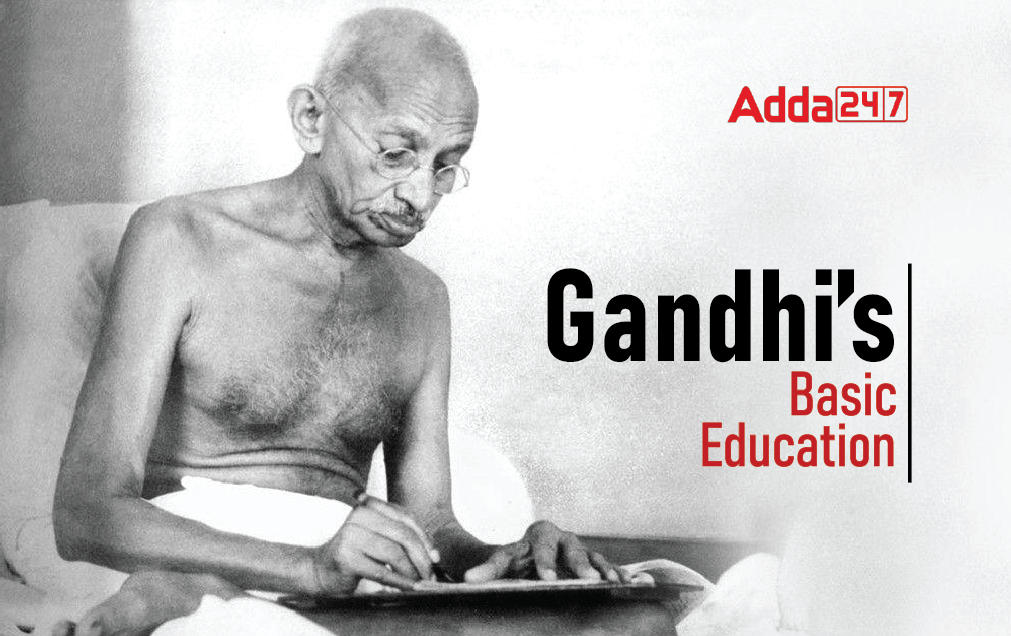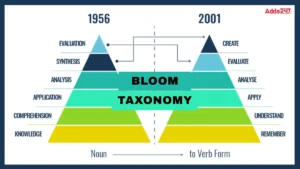Table of Contents
Mahatma Gandhi started his Basic Education scheme, called as Nai Talim in 1937 in his newspaper ‘Harijan’. Basic Education scheme is meant for 6 years of primary education,3 years of lower secondary education and 3 years of upper secondary education. Mahatma Gandhi’s Basic Education was meant to help the child to identify their basic identity. Let’s learn more about Mahatma Gandhi Basic Education – Its Aims, Curriculum, Teaching Methods and Discipline. This can help in exams like CTET.
M K Gandhi’s Basic Education
Mahatma Gandhi, the Father of the Nation was born on 2nd Oct 1869 at Porbandar in the state of Kathiawar (Gujrat). He was a great philosopher, educationist, statesman and experimentalist. He has made a substantial and solid contribution to educational thought and practice in India. He has not left a single aspect of life untouched. He was a versatile philosopher cum statesman. It is a great irony that Gandhi Ji, the apostle of truth and non – violence was shot dead on 30th Jan 1948 by Nathu Ram.
Salient Features
The salient features of his general philosophy of life are enumerated in the following paras :
- Firm faith in God. Gandhi Ji had firm faith in God. To him, God is a pervasive reality, imminent in man and also in the world. He is the ultimate reality and supreme ruler. The ultimate aim of life should be the realization of
- To him, Truth is God and God is Truth. Truth is the inner voice. It is the inner conscience. It is the means to achieve the ultimate truth of God.
- Ahimsa or non-violence. Ahimsa implies complete freedom from violence – freedom from hatred, anger, fear and ill-will. It is the means to achieve the goal of truth.
- It is the practical application of ahimsa. A satyagraha is one who has faith in truth, non-violence, fearlessness and non-stealing.
- Spiritual nature of the individual. He believed that an individual has a divine spirit. He is a spiritual being. Ultimate aim should be spiritual not material.
- Love is essence of morality. No morality is possible without love. Truth can be attained through love and love takes him towards the God.
- Concept of spiritual society. He wanted to establish a spiritual society based on the principle of love, non – violence, truth, and justice.
In the year 1937 Gandhi Ji finalized a scheme of education out of his experiments and tried for its adaptation throughout the country. He also placed the salient features of his scheme of education in the All India Education Conference convened at Wardha on the 22nd, and 23rd of October, 1937. His scheme of education is popularly known as ‘Basic Scheme’ of education or ‘Wardha Scheme’
Meaning of education : –
According to Gandhi, literacy in itself is no education. It is one of the means whereby man and woman can be educated. For Gandhi Ji, education means an all – round development of an individual. In the words of Gandhi, “By education I mean all round drawing out of the best in child and man – body, mind and spirit.”
Aims of education : –
Gandhi Ji had two fold aims : Immediate aims and ultimate aim.
- Immediate aims of education. These are concerned with our day to day life :
- Bread and butter aim. Education must aim at enabling every individual to earn his livelihood. It must enable him to stand on his own feet. Education should be a kind of insurance against unemployment.
- Cultural aim. The cultural aim lays emphasis on obtaining an Indian culture. The culture that is reflected in our dress, our manner of speech, our way of conduct and behavior. It enables one to see things in their true perspective.
- Character aim. He regarded character as the expression of the whole personality including its ethical and spiritual aspects. According to Gandhi, education without character and character devoid of purity would be of no good.
- Perfect development aim. Perfect development means all round development of child. It means development of head, heart and hand – nothing less and nothing more.
- Ultimate aim of education. Self – realization is ultimate aim of life as well as of education. Spiritual freedom provides knowledge of God and self – realization. Hence, education should provide spiritual freedom.
Curriculum : –
Gandhi Ji suggested the teaching of the following subjects in the scheme of education.
- Basic craft. He asserted that education should be craft centered. Basic craft which may be agriculture, spinning, weaving, woodwork etc. should be included in accordance with the local conditions of life and society.
- Mother tongue. Mother be studied as it is an effective instrument for the expression and communication of ideas.
- Arithmetic should be correlated with the life situation. It is very useful subject for day to day life.
- Social studies. It includes subjects like history, civics geography and current events for promoting individual and social virtues.
- General science. General science including nature study, zoology, physiology, hygiene, chemistry, botany and astronomy should be taught for promoting intelligent and scientific outlook. Domestic science should be added for the girls in the fourth and fifth grades.
- Music and drawing. These subjects should be included to create in boys and girls a real interest in education.
- Place for Hindustani. A national language be included and taught in the school curriculum.
Methods of teaching : –
- Education through craft. Gandhi Ji emphasized that education should be given through the medium of some craft or production work.
- Emphasis on activity method and learning by self – experience. He emphasized activity method in the field of teaching. He asserted that learning by doing and learning by self – experience is very effective.
- Correlation method. He advocated the method of correlation. Education of different subjects should be in the form of correlated knowledge and not in the form of separate subjects.
- Lecture and questioning method. He accepted the use of lecture method as well as of questioning method.
- Mother tongue as the medium of instruction. He wanted that all education must be given through the medium of mother tongue.
Discipline : –
Gandhi Ji advocated discipline through self – control. He emphasized voluntary discipline or discipline that springs from within. Self – discipline arises from a pure life of self – restrain, fearlessness, usefulness and self – sacrifice. It may be achieved through non – violent conduct of life.
Teacher : –
Gandhi Ji asserted that only right type of teacher can help in achieving the objectives of education. He should possess knowledge, skill, enthusiasm, patriotism, strong character and special training. He should be friend, philosopher and guide. He should be inspired with the social attitudes and ideals of ahimsa and truth. He should be well equipped and fully alive to the objectives of life and education. He must possess the virtue that he wants to inculcate in the students. He must practice the virtues in himself. He should be able to establish a heart to heart contact with the students.
Download Mahatma Gandhi Basic Education PDF




 UP TGT Sanskrit Syllabus and Exam Patter...
UP TGT Sanskrit Syllabus and Exam Patter...
 UGC NET Study Notes for Paper 1, Downloa...
UGC NET Study Notes for Paper 1, Downloa...
 Bloom Taxonomy, Purpose, Domains, Exampl...
Bloom Taxonomy, Purpose, Domains, Exampl...




